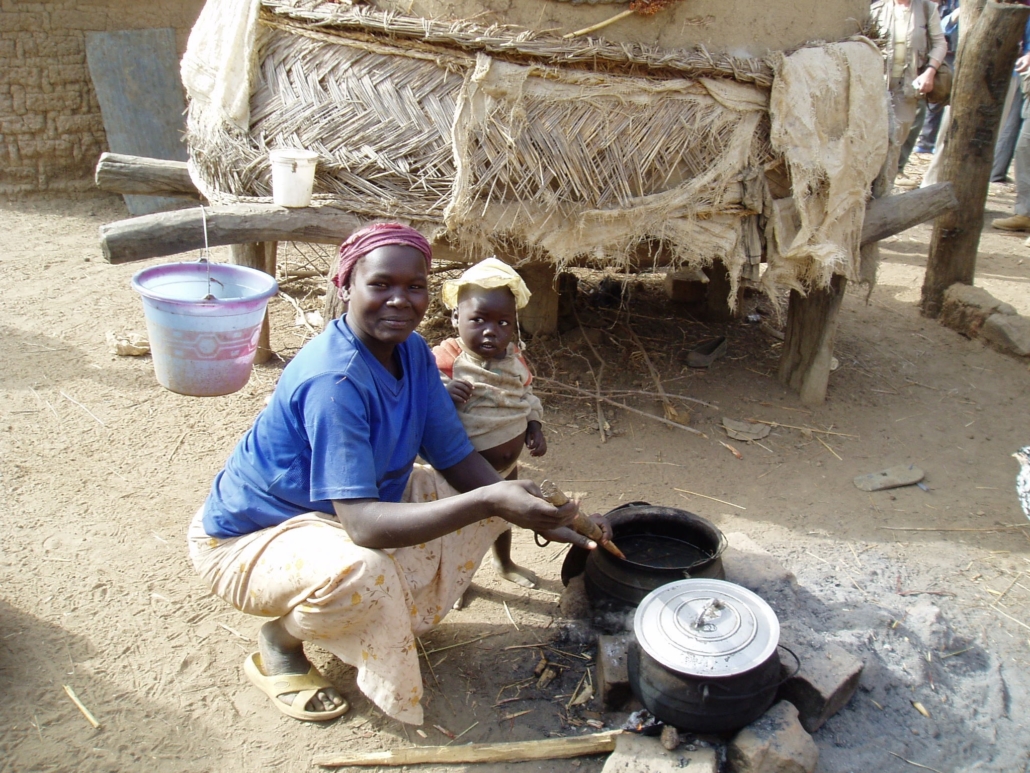Top Organizations Fighting Food Insecurity in Chad

Citizens of Chad suffer from food insecurity and malnutrition. This is due to a number of reasons such as geographical location. Humanitarian crises and poverty have impacted approximately 6.3 million Chadians. However, three notable organizations are working to fight food insecurity in Chad including Action Against Hunger, CARE and the World Food Program U.S.A. (WFP). These groups are working to ensure a direct solution, by providing food to Chad’s citizens. Moreover, these programs are attempting to implement long-term solutions, such as creating more fiscal opportunities and supplying clean water.
Food Insecurity in Chad
The country’s geographical location does not provide a reliable agricultural system. Chad is a landlocked country without any bodies of water. The country’s location also entails a hot, dry climate and the country experiences periods of drought. This has led to a lack of water for drinking and producing food. Moreover, conflict with bordering countries has applied further pressure to Chad’s limited resources. This has led to political instability, social unrest and a great influx of refugees. The country has accepted around 465,000 refugees from Sudan and the Central African Republic. Lack of food supply has resulted in over 317,000 children suffering from acute malnutrition in 2019. An estimated 790,000 inhabitants in Chad live with food insecurity.
Action Against Hunger
In 2019, Action Against Hunger helped 579,092 Chadians combat food insecurity. The organization reached those in need with programs focusing on nutrition and health, sanitation and hygiene and food security and livelihood. Action Against Hunger has worked to create solutions for the long term. For example, it initiated health and nutrition courses in Kanem, Bar El Gazal and Logone Oriental. Moreover, to promote behavioral change, the organization implemented husbands’ schools and care groups.
Action Against Hunger has also provided emergency, short-term and long-term solutions directly related to food. This includes supplying food, teaching new agricultural techniques (solar-powered irrigation systems and farmers’ field schools) and providing job opportunities to young people and women.
CARE
Although CARE does not directly focus on food relief, it offers a number of programs to improve the well-being of Chadians into the future. This includes initiatives such as natural resource management, farming classes and education on water and sanitation.
World Food Program USA (WFP)
WFP has partnered with the United States Agency for International Development (USAID) Office of Food for Peace to provide nourishment to underserved Chadians. The organizations collect food from producers in the United States and local markets. They also distribute food vouchers, cash transfers and specialized nutrition products to struggling Chadians.
WFP has three other initiatives that it focuses on titled Emergency Operation, the School Meals Program and Protracted Relief and Recovery Operation.
- Emergency Operation: This program focuses on those seeking refuge in southern Chad. WFP provides them with nourishment, food vouchers and e-cards, and gives nutrition support for mothers and children.
- School Meals Program: This initiative seeks to increase school attendance, specifically amongst girls. The school meals program reaches approximately 265,000 elementary school children. All students in attendance receive a hot meal and girls can take a monthly ration of oil home to their families. This in turn encourages parents to send their daughters to school, and thus increases the rate of educated females.
- Protracted Relief and Recovery Operation: This program can assist up to 2.2 million Chadians and refugees in need. Health centers and clinics provide supplementary feeding to local and conflicted populations.
Despite food insecurity in Chad, the country is benefitting from significant aid from prominent organizations. Through these organization’s continued support, Chad should be able to improve nutrition for its entire population in time.
– Ella Kaplun
Photo: Flickr
